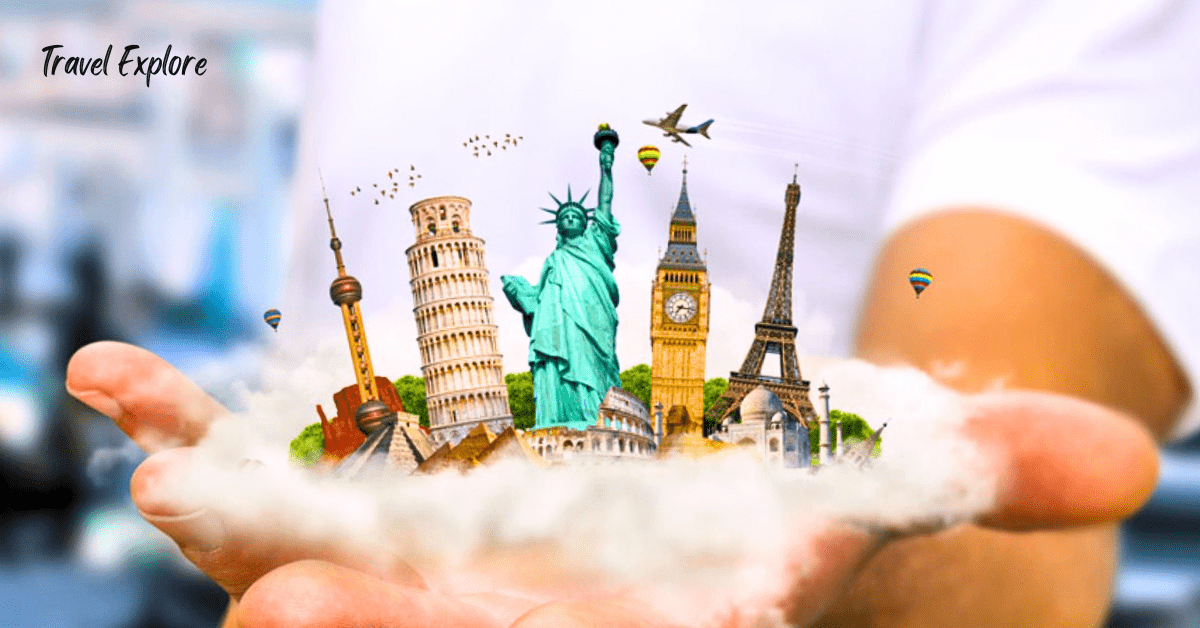What are the Top Travel trends Shaping the way people Explore the World in the 21st century?

The 21st century has brought about significant shifts in the way people explore the world. With advancements in technology, changes in consumer behavior, and evolving societal norms, the landscape of travel has undergone a transformation. In this article, we will delve into the top travel trends that are shaping the way people experience and navigate the globe in this era.
Travel has always been a dynamic industry, influenced by various factors such as economic conditions, geopolitical events, and technological innovations. However, the pace of change has accelerated in recent years, driven by the digital revolution and changing preferences of travelers. As such, it is essential for travel businesses and professionals to stay updated with the latest trends to remain competitive in the market.
Sustainable Tourism
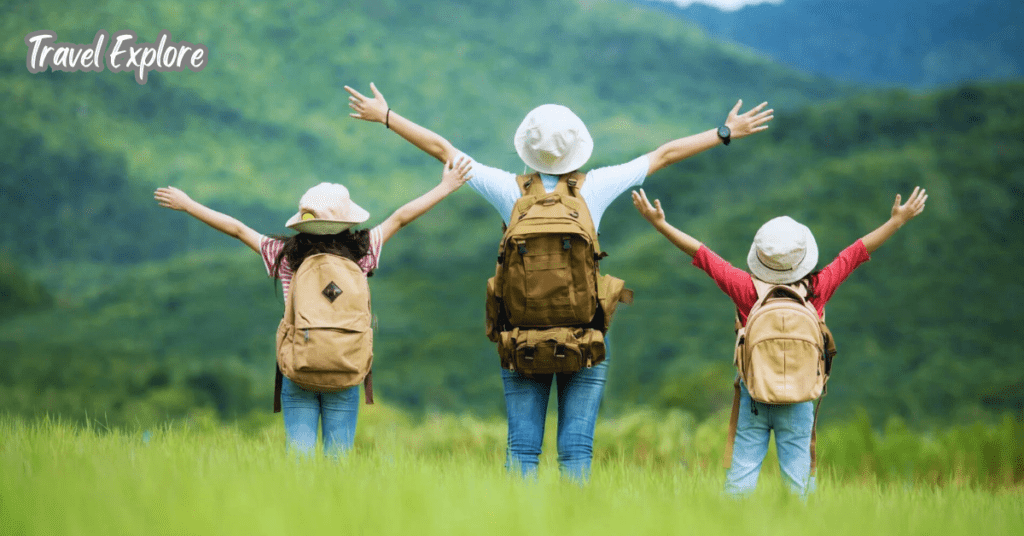
ustainable tourism has emerged as a major trend in the 21st century, driven by growing awareness of environmental issues and the desire to preserve natural resources for future generations. Travelers are increasingly seeking experiences that minimize their carbon footprint and support local communities.
Environmental Conservation
Environmental conservation in the context of travel revolves around the practices and initiatives aimed at minimizing the negative impact of tourism on the natural environment and promoting sustainable use of resources.
This entails a multifaceted approach encompassing various aspects such as reducing carbon emissions, preserving biodiversity, conserving water and energy, minimizing waste generation, and supporting local ecosystems.
Travelers, as well as businesses in the tourism industry, are increasingly recognizing the importance of preserving fragile ecosystems and mitigating the environmental footprint associated with travel activities.One of the key aspects of environmental conservation in travel is the promotion of responsible tourism practices that prioritize the protection of natural habitats and wildlife.
This includes visiting protected areas such as national parks and wildlife reserves in a manner that minimizes disturbance to the local flora and fauna. Additionally, travelers are encouraged to support conservation efforts through participation in eco-friendly activities such as wildlife monitoring, habitat restoration, and beach clean-ups.
Furthermore, sustainable tourism initiatives aim to reduce the carbon footprint of travel by promoting alternative modes of transportation, such as walking, cycling, or using public transit, and advocating for the use of renewable energy sources in the tourism sector.
Travel companies are increasingly adopting eco-friendly practices such as energy-efficient buildings, waste reduction programs, and responsible sourcing of products to minimize their environmental impact.Community engagement is another crucial aspect of environmental conservation in travel, as local communities often bear the brunt of environmental degradation caused by tourism activities.
Travelers are encouraged to support local conservation projects, patronize businesses that prioritize sustainability, and engage with local communities in a respectful and culturally sensitive manner. By fostering partnerships between tourists, businesses, and local stakeholders, environmental conservation efforts can be more effectively implemented and sustained in the long term.
Corporate Responsibility
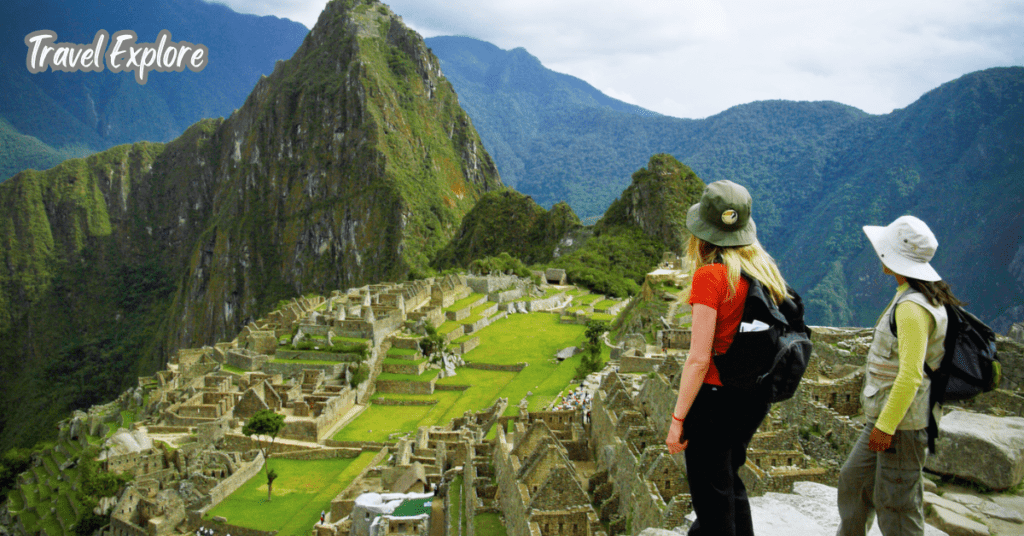
Corporate responsibility in the realm of travel pertains to the ethical and sustainable practices adopted by businesses within the tourism industry. It encompasses a range of initiatives aimed at minimizing negative impacts on local communities, economies, and the environment while maximizing positive contributions.
Travel companies are increasingly expected to demonstrate a commitment to corporate social responsibility (CSR) by integrating environmental, social, and economic considerations into their operations and decision-making processes.
One facet of corporate responsibility in travel involves fostering economic development and empowerment within local communities. This may entail investing in community-based tourism initiatives, supporting local businesses and artisans, and creating opportunities for employment and skill development among residents.
By involving local stakeholders in tourism development and ensuring that economic benefits are distributed equitably, travel companies can contribute to poverty alleviation and sustainable livelihoods in destination areas.
Environmental stewardship is another key component of corporate responsibility in travel, with businesses implementing measures to minimize their ecological footprint and conserve natural resources.
This includes adopting sustainable practices such as reducing energy and water consumption, minimizing waste generation, and supporting conservation efforts in ecologically sensitive areas. Travel companies may also participate in carbon offset programs and invest in renewable energy projects to mitigate their contribution to climate change.
Social responsibility encompasses initiatives aimed at promoting social equity, diversity, and inclusivity within the tourism industry. This may involve implementing fair labor practices, promoting gender equality and diversity in the workforce, and supporting initiatives that benefit marginalized or vulnerable populations.
Travel companies can also play a role in promoting cultural preservation and respect for indigenous rights by engaging with local communities in a meaningful and respectful manner.
Furthermore, corporate responsibility in travel extends to responsible marketing and communication practices that promote transparency, honesty, and integrity. This includes providing accurate and comprehensive information to travelers about the environmental and social impacts of their travel choices, as well as adhering to ethical standards in advertising and promotion.
By prioritizing authenticity and sustainability in their marketing efforts, travel companies can build trust and credibility with consumers and contribute to the overall reputation of the industry.
Personalized Experiences
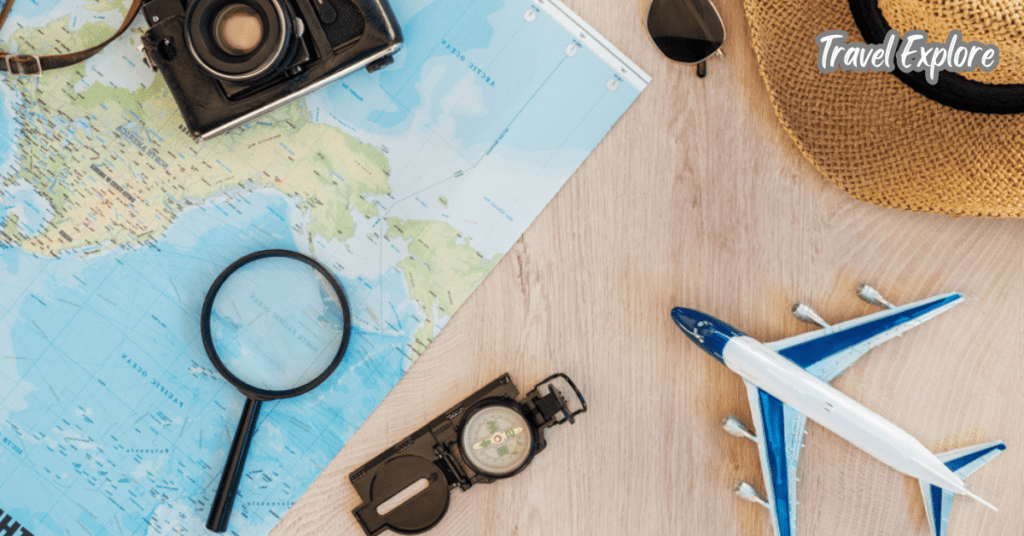
In the digital age, personalization has become a key driver of consumer behavior across industries, and the travel sector is no exception. Travelers today expect tailored experiences that cater to their individual preferences and interests, leading to a rise in demand for personalized travel services.
Customized Itineraries
Customized itineraries in travel refer to personalized travel plans tailored to meet the specific preferences, interests, and needs of individual travelers. Unlike traditional one-size-fits-all tour packages, customized itineraries offer flexibility and choice, allowing travelers to design their own unique travel experiences.
This approach to travel planning is enabled by advancements in technology, including the use of data analytics, artificial intelligence, and online booking platforms, which allow travelers to research, customize, and book their trips with ease.
One of the primary benefits of customized itineraries is the ability to create a personalized travel experience that reflects the traveler’s interests, passions, and travel style. Whether they are seeking adventure, relaxation, cultural immersion, or culinary exploration, travelers can tailor their itinerary to include activities, attractions, and accommodations that align with their preferences.
This may include selecting specific destinations, experiences, and modes of transportation based on individual interests and priorities.
Moreover, customized itineraries offer flexibility and freedom, allowing travelers to explore destinations at their own pace and on their own terms. Travelers can choose the duration of their stay, the timing of their activities, and the order of their itinerary, giving them greater control over their travel experience.
This flexibility is particularly beneficial for travelers with diverse interests, varying schedules, or specific travel requirements, such as families, solo travelers, or group tours.
Hyper-Local Experiences

Hyper-local experiences in travel refer to immersive and authentic encounters with the culture, cuisine, and lifestyle of a destination, often focusing on specific neighborhoods, communities, or traditions.
Unlike mainstream tourist attractions, hyper-local experiences offer travelers the opportunity to delve deeper into the local culture and gain insights into the daily lives of residents. This may include participating in hands-on activities such as cooking classes with local chefs, guided walking tours of hidden neighborhoods, or artisan workshops showcasing traditional crafts and skills.
By engaging with local experts and immersing themselves in the fabric of the destination, travelers can gain a deeper appreciation for its heritage, traditions, and way of life, fostering meaningful connections and cultural exchange.
Hyper-local experiences contribute to a more authentic and enriching travel experience, allowing travelers to uncover hidden gems and discover the true essence of a destination beyond the typical tourist attractions.
Technology Integration

Technology has revolutionized every aspect of the travel industry, from booking flights and accommodations to navigating unfamiliar destinations. In the 21st century, travelers are increasingly relying on technology to enhance their travel experiences and streamline the planning process.
Mobile Booking and Payments
Mobile booking and payments in travel refer to the convenience and efficiency of using smartphones and mobile apps to research, book, and pay for travel services such as flights, accommodations, and activities.
With the widespread adoption of smartphones and the increasing reliance on mobile technology, travelers now have the flexibility to plan and manage their trips anytime, anywhere, with just a few taps on their mobile devices.
Mobile booking platforms offer user-friendly interfaces and intuitive navigation, allowing travelers to search for options, compare prices, and make reservations with ease.
Additionally, mobile payment solutions such as Apple Pay and Google Pay enable secure and seamless transactions, eliminating the need for physical credit cards or cash.
By leveraging mobile technology, travelers can streamline the travel planning process, access real-time information, and enjoy greater convenience and flexibility while on the go, enhancing the overall travel experience.
Big Data and Predictive Analytics
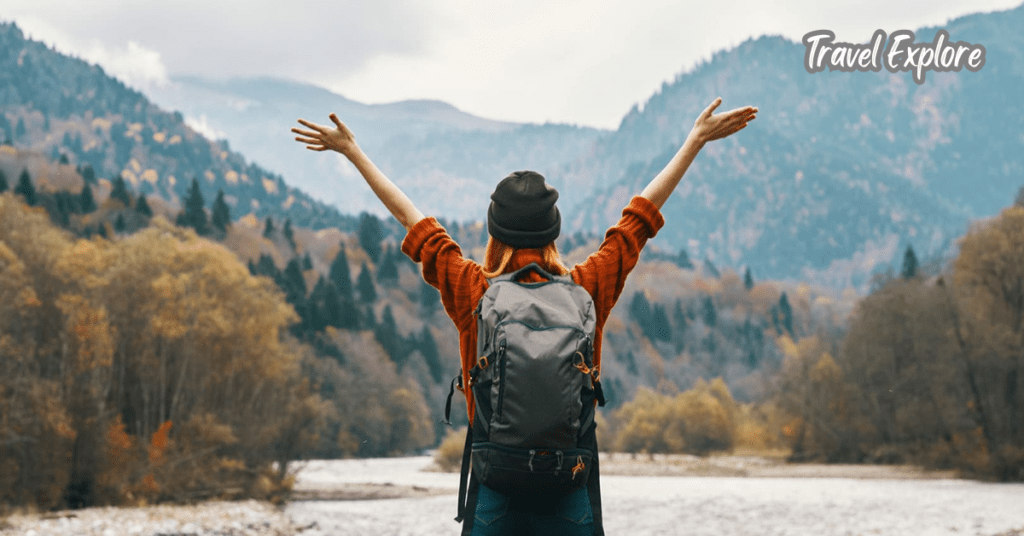
Big data and predictive analytics in travel refer to the utilization of vast amounts of data and advanced analytical techniques to forecast trends, anticipate customer behavior, and optimize business operations within the travel industry.
By collecting and analyzing data from various sources such as booking transactions, website interactions, social media activity, and customer feedback, travel companies can gain valuable insights into traveler preferences, booking patterns, and market trends.
Predictive analytics algorithms then process this data to identify patterns, correlations, and future outcomes, enabling businesses to make informed decisions and tailor their offerings to meet the evolving needs of customers.
This allows travel companies to personalize marketing campaigns, optimize pricing strategies, forecast demand for accommodations and transportation, and enhance the overall customer experience.
Through the strategic use of big data and predictive analytics, travel companies can drive innovation, improve efficiency, and stay ahead of the competition in an increasingly dynamic and competitive market.
Wellness and Mindful Travel

The concept of wellness travel has gained significant momentum in recent years, reflecting a growing awareness of the importance of health and well-being in the travel experience. Travelers are increasingly seeking destinations and experiences that promote relaxation, rejuvenation, and holistic wellness.
Mindful Travel Practices
Mindful travel practices entail a deliberate approach to experiencing and appreciating travel with awareness, respect, and mindfulness. Rather than simply rushing through a checklist of tourist attractions, mindful travelers immerse themselves in the present moment, engaging fully with their surroundings and cultivating a deeper connection to the places they visit.
This may involve practices such as mindful observation of natural beauty, savoring local cuisine with awareness of its cultural significance, and respectfully interacting with local communities. Mindful travelers also prioritize sustainability and responsible tourism, making conscious choices to minimize their environmental impact, support local economies, and respect cultural traditions.
By adopting mindful travel practices, travelers not only enhance their own personal growth and well-being but also contribute to the preservation of natural and cultural heritage for future generations.
Wellness Retreats and Spas

Wellness retreats and spas in travel offer travelers opportunities for relaxation, rejuvenation, and holistic well-being. These specialized destinations provide a sanctuary for individuals seeking to escape the stresses of everyday life and focus on self-care.
Wellness retreats typically offer a range of wellness-focused activities and amenities, including yoga and meditation classes, spa treatments, nutritious cuisine, and outdoor activities such as hiking or nature walks.
Designed to promote physical, mental, and emotional wellness, these retreats provide a nurturing environment where guests can unwind, recharge, and cultivate a healthier lifestyle.
Whether nestled in idyllic natural settings or urban oases, wellness retreats and spas offer travelers the chance to prioritize their health and well-being while indulging in luxurious amenities and immersive experiences tailored to their individual needs.
Conclusion & Recap
The travel landscape of the 21st century is shaped by a diverse range of trends that reflect changing consumer preferences, technological advancements, and evolving societal norms. From sustainable tourism and personalized experiences to technology integration and wellness travel, these trends offer new opportunities for businesses and travelers alike.
Technology integration has revolutionized every aspect of the travel industry, from booking and payments to research and experiences, empowering travelers with tools and platforms that enhance convenience, efficiency, and connectivity.
Technology integration has revolutionized every aspect of the travel industry, from booking and payments to research and experiences, empowering travelers with tools and platforms that enhance convenience, efficiency, and connectivity.
FAQS
What are some sustainable travel tips for eco-conscious travelers?
Pack light to reduce carbon emissions from transportation.
Choose accommodations with eco-friendly practices such as recycling and energy efficiency.
Support local conservation efforts and wildlife sanctuaries during your travels.
How can technology enhance the travel experience?
Mobile apps and platforms provide convenient access to travel information and services.
Virtual reality and augmented reality offer immersive experiences and virtual tours of destinations.
Artificial intelligence facilitates personalized recommendations and real-time assistance for travelers.
What are some popular experiential travel activities?
Cultural immersion experiences such as cooking classes and traditional ceremonies.
Adventure activities like hiking, scuba diving, and zip-lining.
Wellness retreats focusing on yoga, meditation, and holistic well-being.
What are the benefits of digital nomadism?
Flexibility to work from anywhere in the world.
Opportunity to explore new destinations while maintaining a career.
Enhanced work-life balance and freedom to design one’s own schedule.
What are some challenges faced by digital nomads?
Isolation from friends and family while traveling.
Cultural adaptation and language barriers in foreign countries.
Logistics such as visa regulations and internet connectivity in remote locations.




